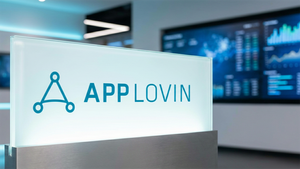
Iowa City, IA – In a groundbreaking move set to shape the future of responsible artificial intelligence, University of Iowa professors, in collaboration with a distinguished colleague from Ohio University, are poised to publish a pioneering textbook titled "AI in Business: Creating Value Responsibly." Slated for release by McGraw-Hill in January 2026, this publication marks a pivotal moment in AI education, specifically addressing the critical ethical dimensions of artificial intelligence within the corporate landscape. This initiative is a direct response to a recognized void in educational resources, aiming to equip a new generation of business leaders with the foundational understanding and ethical foresight necessary to navigate the complex world of AI.
The forthcoming textbook underscores a rapidly growing global recognition of AI ethics as an indispensable field. As AI systems become increasingly integrated into daily operations and decision-making across industries, the need for robust ethical frameworks and a well-educated workforce capable of implementing them has become paramount. The University of Iowa's proactive step in developing this comprehensive resource highlights a significant shift in academic curricula, moving AI ethics from a specialized niche to a core component of business and technology education. Its publication is expected to have far-reaching implications, influencing not only future AI development and deployment strategies but also fostering a culture of responsibility that prioritizes societal well-being alongside technological advancement.
Pioneering a New Standard in AI Ethics Education
"AI in Business: Creating Value Responsibly" is the collaborative effort of Professor Pat Johanns and Associate Professor James Chaffee from the University of Iowa's Tippie College of Business, and Dean Jackie Rees Ulmer from the College of Business at Ohio University. This textbook distinguishes itself by being one of the first college-level texts specifically designed for non-technical business students, offering a holistic integration of managerial, ethical, and societal perspectives on AI. The authors identified a critical gap in the market, noting that while AI technology rapidly advances, comprehensive resources on its responsible use for future business leaders were conspicuously absent.
The textbook's content is meticulously structured to provide a broad understanding of AI, covering its history, various forms, and fundamental operational principles. Crucially, it moves beyond technical "how-to" guides for generative AI or prompt writing, instead focusing on practical business applications and, most significantly, the complex ethical dilemmas inherent in AI deployment. It features over 100 real-world examples from diverse companies, illustrating both successful and problematic AI implementations. Ethical and environmental considerations are not confined to a single chapter but are woven throughout the entire text, using visual cues to prompt discussion on issues like worker displacement, the "AI divide," and the substantial energy and water consumption associated with AI infrastructure.
A defining technical specification of this publication is its adoption of an "evergreen publishing" electronic format. This innovative approach, described by Professor Johanns as a "resource" rather than a static textbook, allows for continuous updates. In a field as dynamic as AI, where advancements and ethical challenges emerge at an unprecedented pace, this ensures the material remains current and relevant, preventing the rapid obsolescence often seen with traditional print textbooks. This continuous adaptation is vital for educators, enabling them to integrate the latest developments without constantly overhauling their courses. Initial reactions from academia, particularly at the University of Iowa, have been highly positive, with the content already shaping new MBA electives and undergraduate courses, and demand for these AI-focused programs exceeding expectations. The strong interest from both students and the broader community underscores the urgent need for such focused education, recognizing that true AI success hinges on strategic thinking and responsible adoption.
Reshaping the Corporate AI Landscape
The emergence of "AI in Business: Creating Value Responsibly" and the broader academic emphasis on AI ethics are set to profoundly reshape the landscape for AI companies, from burgeoning startups to established tech giants like Alphabet (NASDAQ: GOOGL), Microsoft (NASDAQ: MSFT), and IBM (NYSE: IBM). This educational shift will standardize foundational knowledge, moving AI ethics from a niche concern to a core competency for a new generation of AI professionals.
Companies that embrace these ethical principles, driven by a well-trained workforce, stand to gain significant competitive advantages. They can expect reduced risks and liabilities, as ethically-aware personnel are better equipped to identify and mitigate issues like algorithmic bias, data privacy breaches, and transparency failures, thereby avoiding costly lawsuits and reputational damage. Enhanced public trust and a stronger brand image will follow, as organizations demonstrating a commitment to responsible AI will resonate more deeply with consumers, investors, and regulators. This focus also fosters improved innovation, leading to more robust, fair, and reliable AI systems that align with societal values. Tech giants like NVIDIA (NASDAQ: NVDA) and Microsoft, already investing heavily in responsible AI frameworks, can further solidify their leadership by integrating academic ethical guidelines into their extensive operations, offering ethics-as-a-service to clients, and influencing future regulatory landscapes.
However, this shift also brings potential disruptions. AI systems developed without adequate ethical consideration may face redesigns or even withdrawal from the market if found to be biased or harmful. This could lead to increased development costs and extended time-to-market for products requiring retroactive ethical audits and redesigns. Companies may also need to reorient their innovation focus, prioritizing ethical considerations alongside performance metrics, potentially deprioritizing projects deemed ethically risky. For startups and small and medium-sized enterprises (SMEs), ethical AI can be a powerful differentiator, allowing them to secure partnerships and build trust quickly. Conversely, companies merely paying lip service to ethics without genuine integration risk being exposed through "ethics washing," leading to significant reputational backlash from an increasingly informed public and workforce. The demand for AI ethics experts will intensify, creating talent wars where companies with strong ethical frameworks will have a distinct edge.
A Wider Lens: AI Ethics in the Global Context
The publication of "AI in Business: Creating Value Responsibly" fits squarely within a broader, critical re-evaluation of AI's role in society, moving beyond purely technological pursuits to deep integration with societal values and legal obligations. This moment is defined by a global imperative to move from reactive ethical discussions to proactively building concrete, actionable frameworks and robust governance structures. The textbook's holistic approach, embedding ethical and environmental issues throughout its content, mirrors the growing understanding that AI's impact extends far beyond its immediate function.
The impacts on society and technology are profound. Ethically guided AI seeks to harness the technology's potential for good in areas like healthcare and employment, while actively addressing risks such as the perpetuation of prejudices, threats to human rights, and the deepening of existing inequalities, particularly for marginalized groups. Without ethical frameworks, AI can lead to job displacement, economic instability, and misuse for surveillance or misinformation. Technologically, the focus on ethics drives the development of more secure, accurate, and explainable AI systems, necessitating ethical data sourcing, rigorous data lifecycle management, and the creation of tools for identifying AI-generated content.
Potential concerns remain, including persistent algorithmic bias, complex privacy and data security challenges, and the ongoing dilemma of accountability when autonomous AI systems err. The tension between transparency and maintaining proprietary functionality also poses a challenge. This era contrasts sharply with earlier AI milestones: from the speculative ethical discussions of early AI (1950s-1980s) to the nascent practical concerns of the 1990s-2000s, and the "wake-up call" of the 2010s with incidents like Cambridge Analytica. The current period, marked by this textbook, signifies a mature shift towards integrating ethics as a foundational principle. The University of Iowa's broader AI initiatives, including an AI Steering Committee, the Iowa Initiative for Artificial Intelligence (IIAI), and a campus-wide AI certificate launching in 2026, exemplify this commitment, ensuring that AI is pursued responsibly and with integrity. Furthermore, the textbook directly addresses the "AI divide"—the chasm between those who have access to and expertise in AI and those who do not—by advocating for fairness, inclusion, and equitable access, aiming to prevent technology from exacerbating existing societal inequalities.
The Horizon: Anticipating Future Developments
The publication of "AI in Business: Creating Value Responsibly" signals a pivotal shift in AI education, setting the stage for significant near-term and long-term developments in responsible AI. In the immediate future (1-3 years), the landscape will be dominated by increased regulatory complexity and a heightened focus on compliance, particularly with groundbreaking legislation like the EU AI Act. Responsible AI is maturing from a "best practice" to a necessity, with companies prioritizing algorithmic bias mitigation and data governance as standard business practices. There will be a sustained push for AI literacy across all industries, translating into greater investment in educating employees and the public on ethical concerns and responsible utilization. Academic curricula will continue to integrate specialized AI ethics courses, case-based learning, and interdisciplinary programs, extending even to K-12 education. A significant focus will also be on the ethics of generative AI (GenAI) and the emerging "agentic AI" systems capable of autonomous planning, redefining governance priorities.
Looking further ahead (3-10+ years), the field anticipates the maturation of comprehensive responsible AI ecosystems, fostering a culture of continuous lifelong learning within professional contexts. The long-term trajectory of global AI governance remains fluid, with possibilities ranging from continued fragmentation to eventual harmonization of international guidelines. A human-centered AI paradigm will become essential for sustainable growth, prioritizing human needs and values to build trust and connection between organizations and AI users. AI will increasingly be leveraged to address grand societal challenges—such as climate change and healthcare—with a strong emphasis on ethical design and deployment to avoid exacerbating inequalities. This will necessitate evolving concepts of digital literacy and citizenship, with education adapting to teach new disciplines related to AI ethics, cybersecurity, and critical thinking skills for an AI-pervasive future.
Potential applications and use cases on the horizon include personalized and ethically safeguarded learning platforms, AI-powered tools for academic integrity and bias detection, and responsible AI for administrative efficiency in educational institutions. Experiential learning models like AI ethics training simulations will allow students and professionals to grapple with practical ethical dilemmas. Experts predict that AI governance will become a standard business practice, with "soft law" mechanisms like standards and certifications filling regulatory gaps. The rise of agentic AI will redefine governance priorities, and education will remain a foundational pillar, emphasizing public AI literacy and upskilling. While some extreme predictions suggest AI could replace teachers, many foresee AI augmenting educators, personalizing learning, and streamlining tasks, allowing teachers to focus on deeper student connections. Challenges, however, persist: ensuring data privacy, combating algorithmic bias, achieving transparency, preventing over-reliance on AI, maintaining academic integrity, and bridging the digital divide remain critical hurdles. The rapid pace of technological change continues to outpace regulatory evolution, making continuous adaptation essential.
A New Era of Ethical AI Stewardship
The publication of "AI in Business: Creating Value Responsibly" by University of Iowa professors, slated for January 2026, marks a watershed moment in the trajectory of artificial intelligence. It signifies a profound shift from viewing AI primarily through a technical lens to recognizing it as a powerful societal force demanding meticulous ethical stewardship. This textbook is not merely an academic exercise; it is a foundational resource that promises to professionalize the field of AI ethics, transforming abstract philosophical debates into concrete, actionable principles for the next generation of business leaders.
Its significance in AI history cannot be overstated. By providing one of the first dedicated, comprehensive resources for business ethics in AI, it fills a critical educational void and sets a new standard for how higher education prepares students for an AI-driven world. The "evergreen publishing" model is a testament to the dynamic nature of AI ethics, ensuring that this resource remains a living document, continually updated to address emerging challenges and advancements. This proactive approach will likely have a profound long-term impact, fostering a culture of responsibility that permeates AI development and deployment across industries. It has the potential to shape the ethical framework for countless professionals, ensuring that AI genuinely serves human well-being and societal progress rather than exacerbating existing inequalities.
In the coming weeks and months, all eyes will be on the textbook's adoption rate across other universities and business programs, which will be a key indicator of its influence. The expansion of AI ethics programs, mirroring the University of Iowa's campus-wide AI certificate, will also be crucial to watch. Industry response—specifically, whether companies actively seek graduates with such specialized ethical training and if the textbook's principles begin to inform corporate AI policies—will determine its real-world impact. Furthermore, the ethical dilemmas highlighted in the textbook, such as algorithmic bias and worker displacement, will continue to be central to ongoing policy and regulatory discussions globally. This textbook represents a crucial step in preparing future leaders to navigate the complex ethical landscape of artificial intelligence, positioning the University of Iowa at the forefront of this vital educational endeavor and signaling a new era where ethical considerations are paramount to AI's success.
This content is intended for informational purposes only and represents analysis of current AI developments.
TokenRing AI delivers enterprise-grade solutions for multi-agent AI workflow orchestration, AI-powered development tools, and seamless remote collaboration platforms.
For more information, visit https://www.tokenring.ai/.







